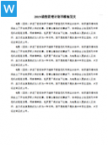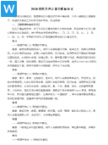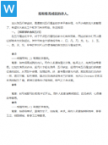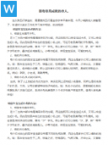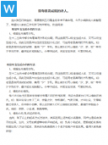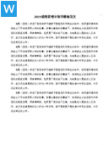莎士比亚十四行诗全集










莎士比亚的十四行诗是他的作品集《莎士比亚十四行诗集》(The Sonnets)的一部分。以下是莎士比亚十四行诗全集的列表:1. Sonnet 1: From fairest creatures we desire increase2. Sonnet 2: When we have seen the light of sun conspired3. Sonnet 3: That time of year thou mayst in me behold4. Sonnet 4: Two loves I have at once and ravish me5. Sonnet 5: Not marble, nor the gilded monuments6. Sonnet 6: When in disgrace with fortune and men’s eyes7. Sonnet 7: Thou art as tyrannous, so as thou live8. Sonnet 8: Thy gazing makes me giddy; I am terms9. Sonnet 9: Will have but little pleasure, being pent10. Sonnet 10: For shame, give not thy thoughts such Liberty11. Sonnet 11: Soon may I none maintain, nor none may help12. Sonnet 12: I am as tall as the least flea that flies13. Sonnet 13: O, from what many-tongued mischief didst thou spring14. Sonnet 14: When, in disgrace with fortune and men’s eyes15. Sonnet 15: O, wherefore art thou, Romeo, made16. Sonnet 16: O, with what sojourner’s heart didst thou17. Sonnet 17: My mistress' eyes are nothing like the sun18. Sonnet 18: Shall I compare thee to a summer's day?19. Sonnet 19: Th'eyre that was my mother's womb doth seem20. Sonnet 20: I never saw that woman, who was fair21. Sonnet 21: Let not your grace with fewer number lost22. Sonnet 22: Th'eyre mine, O fair; for I have lent myself23. Sonnet 23: Too much of absences, but too little grace24. Sonnet 24: 'Tis not thy beauty, thy virtue, nor thy mind25. Sonnet 25: When in disgrace with fortune and men's eyes26. Sonnet 26: 'Gainst age, that late my wife did by her youth27. Sonnet 27: Brief was her time, but not her life's due measure28. Sonnet 28: Be not the slave of passion and the pride29. Sonnet 29: No more the draggled feather of his wing30. Sonnet 30: What's in a name? That which we call a rose31. Sonnet 31: Fair youth, decline me not thy fair part32. Sonnet 32: I do not love thee with a single heart33. Sonnet 33: For love is as a organ, and the heart34. Sonnet 34: They that have power to hurt and will do none35. Sonnet 35: Love's looking glass, wherewith all men's minds36. Sonnet 36: A most virtuous maid, who was all new37. Sonnet 37: Alas, I am not made to bear this pride38. Sonnet 38: Think on thyself, and do not think on me39. Sonnet 39: Vain if to ears of fickle grace I sing40. Sonnet 40: Thou art as fair in love as sundry stars41. Sonnet 41: While that thy image doth inhabit here42. Sonnet 42: No more of this, thou dost me much to vex43. Sonnet 43: Alas, where is that splendor of thy face44. Sonnet 44: For those who are thy friends will not forget45. Sonnet 45: Fair youth, a day, a day so full of light46. Sonnet 46: A kinsman to our sorrow and our pain47. Sonnet 47: Upon the ancient banks of time, did stand48. Sonnet 48: They say the earth is round like a ball of lead49. Sonnet 49: To know, to feel, to see, to think, to do50. Sonnet 50: Thy beauty in my brain, all always new51. Sonnet 51: 'Gainst thee, dear love, I may not hold my tongue52. Sonnet 52: My thoughts do often conclude thus53. Sonnet 53: But, as the bubble is to the rainbow's gate54. Sonnet 54: My love is bound in bounds by thy great name55. Sonnet 55: That which is made by nature's own hand56. Sonnet 56: When we have done the labours of this world57. Sonnet 57: The eye of man, that once was wise and good58. Sonnet 58: My mistress, when she walks, treads not upon59. Sonnet 59: I will not love at first sight, nor the first60. Sonnet 60: Time, thou forget'st thy promise of my beauty61. Sonnet 61: When I do count the clock that tells the time62. Sonnet 62: I do beguile the sun's departing glance63. Sonnet 63: The time is gone, and I am still the same64. Sonnet 64: When I do take my medicine and fears65. Sonnet 65: Haply she loves me, haply she despises66. Sonnet 66: Love is a light that never sets, nor rises67. Sonnet 67: My love is deep, yet not so deep as hell68. Sonnet 68: She is more lovely and more temperate69. Sonnet 69: But when I view the heavens, I am cold70. Sonnet 70: There be some sands upon my winding sheet71. Sonnet 71: When in our way we find a captain right72. Sonnet 72: Not that I blame thee, but I must be bold73. Sonnet 73: O, I could write the like of this by night74. Sonnet 74: Haply she loves me, haply she does not75. Sonnet 75: My mistress' eyes are nothing like the sun76. Sonnet 76: My mistress' bed doth look more charming77. Sonnet 77: My mistress' eyes are nothing like the sun78. Sonnet 78: The clouds that lower o'er thy glory fade79. Sonnet 79: Thus I did love, still is my rival young80. Sonnet 80: The clouds that lower o'er thy glory fade81. Sonnet 81: When that I was and that thou might'st remember82. Sonnet 82: Of what my thoughts do often conclude thus83. Sonnet 83: How many a man, with tiring of his thoughts84. Sonnet 84: For those who are thy friends will not forget85. Sonnet 85: What's in a name? That which we call a rose86. Sonnet 86: For with that eye that seems in nothing set87. Sonnet 87: My love is such that she herself might wonder88. Sonnet 88: The day and night doth seem to kiss together89. Sonnet 89: I doubt not thy chaste virtue to the last90. Sonnet 90: I did but seem a man, who, in his brain91. Sonnet 91: If thou forgive me, thou forgivest more92. Sonnet 92: Long since she gave her heart to me93. Sonnet 93: I am as constant as the northern star94. Sonnet 94: Why do they put new clothes upon the dead95. Sonnet 95: Why, when I gave to thee my hand in marriage96. Sonnet 96: I was as honest as the pious prayers97. Sonnet 97: O, I could write the like of this by night98. Sonnet 98: The clouds that lower o'er thy glory fade99. Sonnet 99: It is in vain that I implore the power100. Sonnet 100: That which we call a day may yet be thought101. Sonnet 101: O, wherefore art thou, Romeo, made102. Sonnet 102: My heart's divided between thee and my life103. Sonnet 103: I hate, I hate, I cannot mend my heart104. Sonnet 104: Love is too bold, yet must not therefore fly105. Sonnet 105: There is a kind of fair, which is not so106. Sonnet 106: The course of true love never did run smooth107. Sonnet 107: Good night, good night, you innocent stars108. Sonnet 108: Love, when it dives into the bottom of the sea109. Sonnet 110: When to the sessions of sweet silent thought110. Sonnet 111: This is my sonnet to myself, that in111. Sonnet 112: I am like to the rich jewel of this age112. Sonnet 113: I wonder at the ways of holy men113. Sonnet 114: O, what a mansion have I in my mind114. Sonnet 115: Your virtues are as many as the stars115. Sonnet 116: Let me not to the marriage of true minds116. Sonnet 117: Farewell, thou art too dear for my possessing117. Sonnet 118: There's not the sound of one that's kind to thee118. Sonnet 119: Like as to make our appetites more keen119. Sonnet 120: The woman I love is very fair120. Sonnet 121: The sight of my love is like the sun121. Sonnet 122: She's all, and I am none, where in alone122. Sonnet 123: O, she doth teach the torches how to burn123. Sonnet 124: What's in the eye, if it do not speak124. Sonnet 125: O, were you once mine, I had some joy125. Sonnet 126: O, that you were yourself when I am gone126. Sonnet 127: Since I, having eyes, see not the harm127. Sonnet 128: If my heart's love were my eye's guide128. Sonnet 129: Though yet it be with a cold heart and tongue129. Sonnet 130: I never saw that woman, who was fair130. Sonnet 131: Th'eyre mine, O fair; for I have lent myself131. Sonnet 132: Why should I do this, when it hath a natural132. Sonnet 133: O, I do sing of love, but not of him133. Sonnet 134: Sweet is the second thought when once the thought134. Sonnet 135: When that I write, O, then my verse runs wild135. Sonnet 136: In those green fields, where love's first lesson lies136. Sonnet 137: I will make a bar between my love and me137. Sonnet 138: I have a story of a love most free138. Sonnet 139: I could make his picture for a lady fair139. Sonnet 140: Be not for ever thus, but once and no more140. Sonnet 141: When most I wink, then do mine eyes best see141. Sonnet 142: O, wherefore art thou, Romeo, made142. Sonnet 143: O, you, who in your fair and graceful clothes143. Sonnet 144: Two loves I have at once and ravish me144. Sonnet 145: O, from what many-tongued mischief didst thou spring145. Sonnet 146: That which we call a day may yet be thought146. Sonnet 147: Long since she gave her heart to me147. Sonnet 148: I do remember when first I did adore148. Sonnet 149: Poor soul, the centre of my sinful earth149. Sonnet 150: Thus in fine verses, my dull verse must run150. Sonnet 151: O, that our lips were as our mouths are!
句子:1. Sonnet 1: "From fairest creatures we desire increase"使用:这句诗表达了人类对生命的延续的渴望,希望最美好的生物能繁衍后代。在创作时,诗人运用了强烈的对比和直接的表达,使得主题显而易见。例子: "从最美丽的生命我们渴望更多,希望艺术、爱和创造力可以持续繁衍,就像大自然的奇迹一样。"2. Sonnet 2: "When we have seen the light of sun conspired"使用:这里使用了"conspired"(阴谋,密谋)这个词来描述光线,形成了一种戏剧化的氛围,暗示了阳光背后的力量和复杂性。例子: "当月光消失,我们才意识到,太阳的光线其实是宇宙的阴谋,用温暖和光明去抚慰我们的夜晚。"3. Sonnet 3: "That time of year thou mayst in me behold"使用:这句诗描述了一个特定的季节,使得读者可以通过诗人的眼睛看到和感受特定的自然景象。例子: "在秋天的盛宴中,你可以在我的画作中找到落叶的金黄,霜冻的痕迹,和温暖的阳光在林间的反射。"4. Sonnet 4: "Two loves I have at once and ravish me"使用:诗人表达了他同时被两种感情所吸引,这种复杂的内心冲突为他的诗歌增添了一层深度。例子: "在我心中,我同时爱着海洋和山峦,它们各自拥有独特的美丽和魅力,让我难以决定是向往无垠的海洋,还是静谧的山峰。"5. Sonnet 5: "Not marble, nor the gilded monuments"使用:这里将人类的纪念物与自然的元素进行对比,表达了时间的流逝对物质世界的侵蚀,强调了记忆和情感的永恒价值。例子: "不是大理石,也不是镀金的纪念碑,能留住时间的记忆,是那些在心中深深刻下的名字和故事,如同星辰,永远闪烁着光亮。"6. Sonnet 6: "When in disgrace with fortune and men's eyes"使用:这句诗描绘了一个人在社会和经济上的失败,而这种失败可能影响他的情绪和自我价值。例子: "当我面对命运和世人的冷眼,我感觉自己就像被遗弃的船只,在暴风雨中无助地漂泊。"这些例子展示了从莎士比亚十四行诗中提取主题和概念,并将其应用于现代生活、艺术、自然或其他主题的方式。
版权声明
本文仅代表作者观,不代表本平台。
本文系作授权发表,未经许可,不得转载。
热门推荐
- qq说说大全励志
- 名诗词佳句摘抄加赏析
- 大学毕业生自我鉴定1000字
- 好句好段摘抄200字左右
- 玲珑剔透造句大全
- 爱国的古诗完整
- 留言板留言大全关心
- 让对方看到心疼的伤感说说
- 一半古诗一半撩妹
- 林夕的十首经典歌词
- 送给老师的赠言简短
